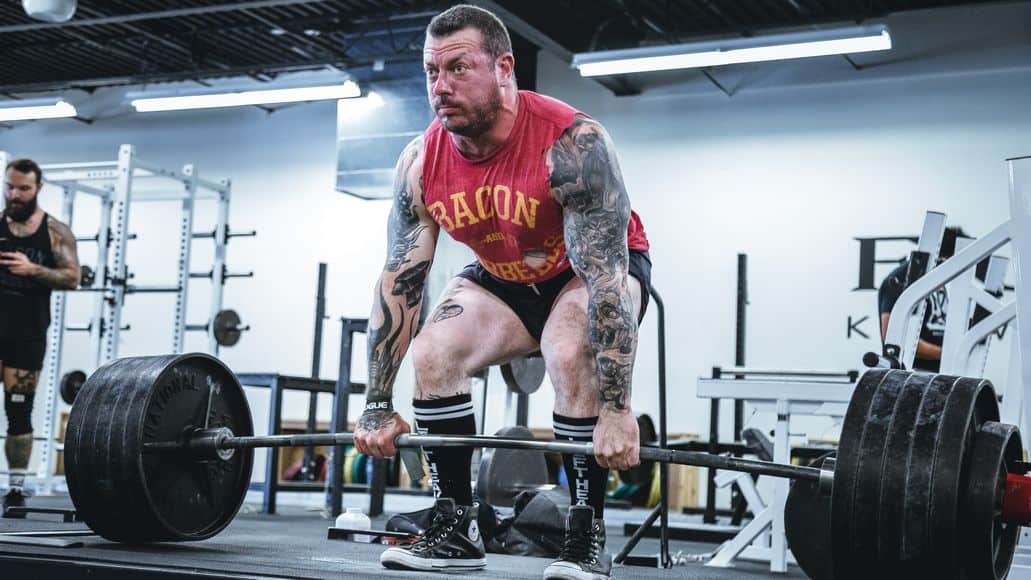 Everybody has a different reason and goal for working out.
Everybody has a different reason and goal for working out.
And there are tons of methods available for achieving each of those goals.
One thing that anybody who starts exercising does have in common is the desire for results. They spend their time scouring the web for information on how to get there quicker.
This is completely logical. After all, nobody wants to waste precious time and effort.
Depending on your specific fitness goals, you sweat on the treadmill, hit the elliptical, or test your limits with a power rack.
But how long does it really take for you to see results from your training?
The answer to that question isn’t quite as straight-forward as you may like. But we will do our best to provide you with a good set of expectations, guidelines and some hints on how to make fast and consistent progress.
Factors That Affect Training Results Time
When it comes to determining how fast you are likely to see results from your training, there are various factors at play. It is important for you to understand these factors so you can formulate a set of clear and realistic expectations from your training program. Below is a list of the main variables, which may impact the speed of your results.
1. Training experience

How advanced you are in your training will have a large impact on how quickly you will be able to see changes in your body. In general, the further you are away from your end goal, the faster you will see progress.
Somebody who is very new to a specific endeavor will make a relatively fast transformation and progress in the beginning. As the trainee becomes more advanced, progress will become much harder to come by.
This law of diminishing returns is the one true advantage a beginner has over somebody who is more advanced. As long as you plan your training correctly, you will see more significant progress in a fairly short period of time.
The rule does not just apply to training in general; it applies to the specific goal or style of training. For example, a very experienced runner may see slow progress in running times but would likely experience very fast progress if switching to strength training. This is because they would revert back to being a beginner when it comes to strength training.
2. Training goal
It should be no surprise to you that different goals require some variation in training methods and, therefore, will take varying lengths of time to bring about results. The 3 main training goals for most people who exercise are weight loss, muscle building, and strength gain. This section will cover realistic expectations for each of those goals.
Weight Loss Expectations

Losing weight is a goal that can have fairly rapid results. Most people will notice a weight reduction within the first few days and may even appear to look slimmer. Unfortunately, this initial drop is largely due to lower water retention levels and having less food in your digestive system.
To see noticeable fat loss progress, which should be the main goal instead of just “weight”, it will likely take around 4 weeks. In terms of scale weight, losing more than 2 lbs each week for most people probably means you are eating too few calories and burning muscle tissue as well as fat.
There is some variance in these results and people with more weight to lose may be able to get away with losing more weight each week. For the majority of people, following a healthy diet and dropping an average of 1 to 2 lbs each week should be a sustainable rate of progress.
Muscle Building Expectations
Building muscle is a much slower process than losing weight and is much more dependent on your experience level. In fact, the vast majority of your muscle gains is likely to be made in your first 1 to 2 years of training.
Gender will also play a key part in determining your muscle building rate. Males have higher natural levels of testosterone and can usually build muscle more quickly than a female can.
A good rate of muscle growth for a complete beginner would be between 0.5 to 2 lbs per month, with most females being on the lower end of that range. Do not be discouraged by this as a few pounds of muscle can make a great difference to your overall physique.
Strength Training Expectations

In the world of strength training, the beginner trainee should consider himself truly blessed. Somebody who is new to training for strength has the ability to adapt very quickly as a result of the nervous system transformation.
When you are new to training, your brain actually inhibits a lot of your muscle fibers from firing. This “neural inhibition” is a safety mechanism but is overcome when your body starts to become accustomed to lifting heavy objects.
Once you begin to utilize more of your muscle fibers for lifting weights, the speed at which you can progress is very fast. In some cases, you may be able to lift more weight every time you enter the gym.
Of course, adequate rest and recovery must take place between your gym sessions but a beginner may be able to squat 3 times per week and increase the weight by 5 lbs in each of those sessions.
For most new trainees, increasing the weight on a compound lift such as the bench press or deadlift by 5 lbs each week is realistic progress. Eventually, you will reach a more advanced stage and no longer be able to add weight so regularly. When this time comes, more advanced training programs will need to be employed.
3. Training Methods
It should go without saying that your results will only be as good as the training program you are following. If you want faster results, you must follow a solid training plan.
It is beyond the scope of this article to discuss different training approaches in detail and it could easily fill up many books.
The best thing you can do is follow a program that is specific to your goals and has a proven record of results. Once you have chosen a program, stick with it for the required time frame and do not deviate until you have completed it. Only then will you know if it was effective for you or not.
4. Genetics

Unfortunately, this is one that you can do nothing about but it is still worth mentioning. Some people are just naturally better suited to certain activities and will make very fast progress with them.
If your parents have an easy time gaining muscle, losing fat or getting fitter then you will likely find it easy too.
Genetics should never be an excuse, though. You may feel that you don’t have the best genes but you can always improve upon your current position. Sure, you may not make it to the very elite level but you can most definitely reach a higher level than you would if you were doing nothing.
Tips For Faster Progress
Now that you know the factors that determine the speed of your results, you can take steps to take advantage of them and make faster progress. Here is a list of tips to make progress and see results as soon as possible.
Have A Plan
The importance of this cannot be emphasized enough. Without a plan, you have no path to take you to your end goal.
A good plan should be very specific to whatever it is you wish to achieve, and every element of the plan should move you closer to your goals. If you wish to take the guesswork out of the planning phase, you can get a reputable professional to design your plan for you if you have the budget for it.
Prioritize Your Nutrition

Even the most well thought out plan can fall apart if your diet does not align with your goals. Your nutrition affects your body composition, brain function and physical performance levels so diet must be taken seriously.
If you decide to eat poor quality foods, your progress will not be at the level it is capable of being at.
Take Consistent Action
Once you have your plans in place, you need to take action and execute them with utmost dedication and consistency.
It will not be enough to spend just a few weeks or even months working toward your goals. You need to be prepared to make this a habit and a lifestyle.
Those who see the best results may not even have the best plan in the world but they have adamantly stuck to their program.
Be Patient
Last but not least, you must patiently trust the process. While this entire article is about the speed of results, quick progress is not always the best.
You can use the information we covered earlier as general expectations and rough guidelines but you don’t need to be overly concerned with them. The most important thing is actually making constant progress, regardless of the pace.
As long as you are getting better and pushing yourself to new levels over time, your training has been worthwhile.
Leave a Reply